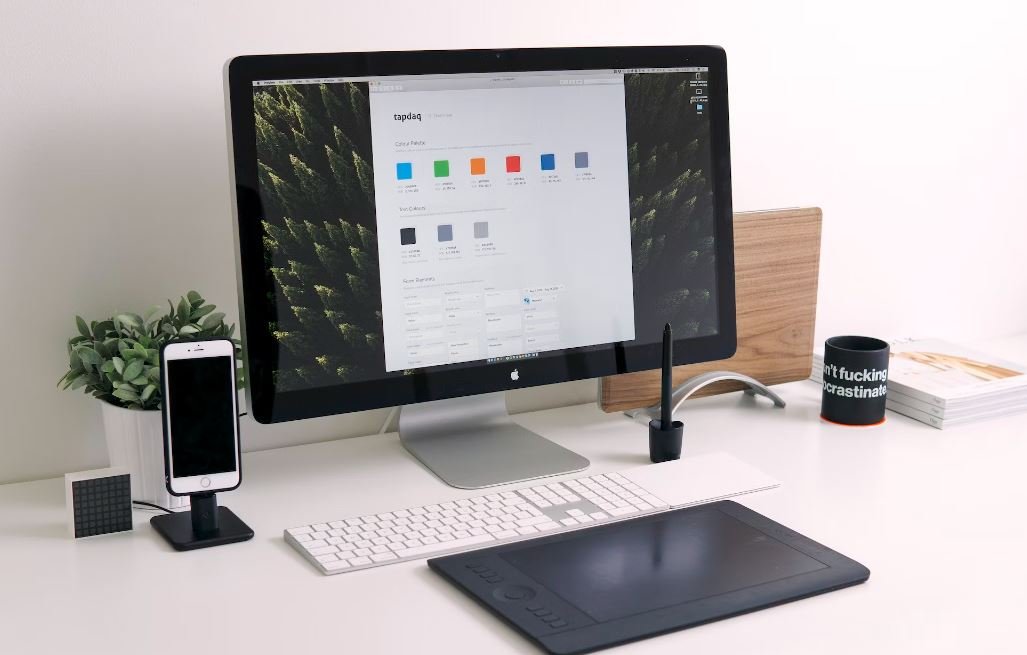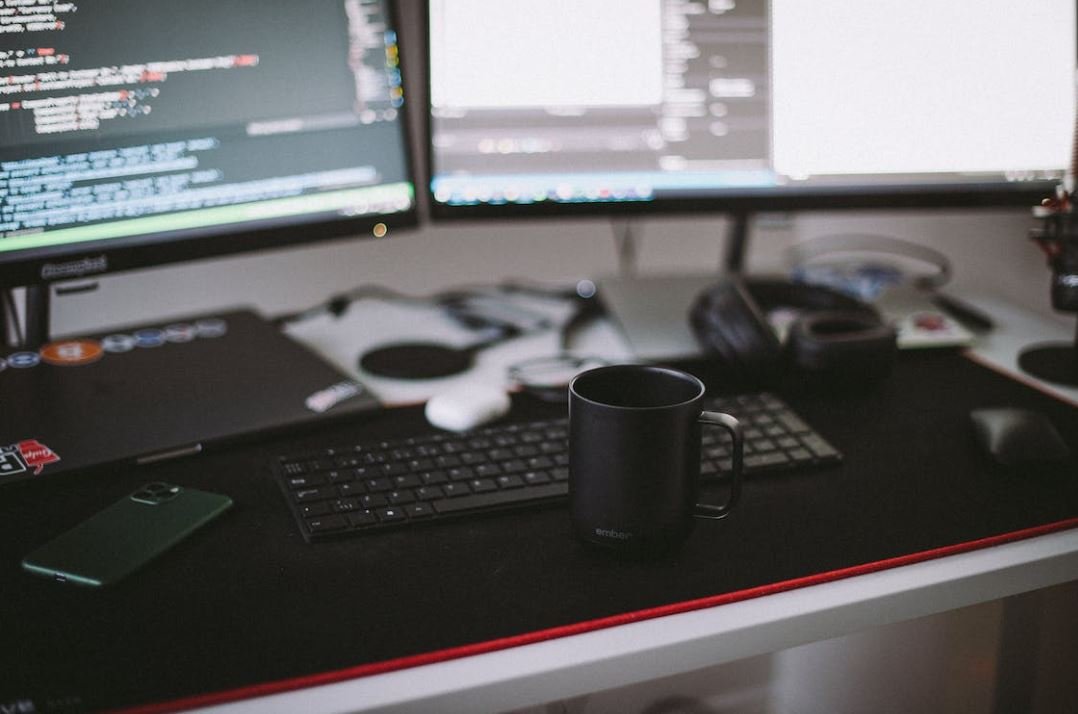Will Apps Transfer from Android to iPhone?
Many people often wonder whether the apps they have on their Android device can be transferred to an iPhone. This is especially relevant for individuals who are considering switching from Android to iPhone. In this article, we will explore whether apps can be transferred between these two different mobile operating systems.
Key Takeaways:
- Apps cannot be directly transferred from Android to iPhone due to the difference in the underlying operating systems.
- There are alternative solutions available, such as downloading equivalent apps from the App Store.
- Some apps may offer cross-platform syncing or migration options.
Understanding App Compatibility
**App compatibility** is a crucial factor when it comes to transferring apps between Android and iPhone. Since the two operating systems, Android and iOS, are fundamentally different, apps are designed specifically for each platform. *This means that an app developed for Android cannot be directly installed on an iPhone and vice versa.* However, developers may create versions of their apps for both Android and iOS, allowing users to download the equivalent app from the App Store on an iPhone.
Alternative Solutions
While direct app transfers are not possible, there are alternative solutions available for users to enjoy similar functionality on their iPhone. Here are some viable options to consider:
- Search for Equivalent Apps: Look for similar apps to the ones you used on Android in Apple’s App Store. Many popular apps have iOS versions that offer similar features.
- Utilize Cross-Platform Syncing: Some apps allow for data syncing across different platforms. If this feature is available, you can install the app on your iPhone and sync your data from the Android version.
- Transfer Data Using Third-Party Tools: Certain third-party tools facilitate the transfer of specific types of data, such as contacts, photos, and messages, from Android to iPhone.
Table: App Availability Comparison
| App | Android Availability | iOS Availability |
|---|---|---|
| Yes | Yes | |
| Yes | Yes | |
| Google Maps | Yes | Yes |
Table: Popular Cross-Platform Apps
| App | Android Availability | iOS Availability |
|---|---|---|
| Evernote | Yes | Yes |
| Microsoft Outlook | Yes | Yes |
| Google Drive | Yes | Yes |
Migrating Apps
While it is not possible to directly transfer apps between Android and iPhone, users shouldn’t feel discouraged. *There are numerous alternatives available, including equivalent apps, cross-platform syncing, and third-party data transfer tools.* With a little effort, you can quickly adapt to your new iPhone and enjoy a seamless transition.

Common Misconceptions
1. Apps Cannot be Transferred from Android to iPhone
One common misconception is that apps cannot be transferred from Android to iPhone. While it is true that the two operating systems are different and apps are not directly compatible, there are ways to transfer certain apps from Android to iPhone.
- Not all apps are available on both platforms
- Apps with similar functionality may exist on both platforms
- Transferring apps may require manual reinstallation on the new device
2. All App Data Will be Lost
Another misconception is that all app data will be lost when transferring from Android to iPhone. While it is true that certain data, such as app preferences and settings, may not be transferable, many apps nowadays offer cloud backup or syncing options that allow users to transfer their data across devices.
- Cloud backup options may vary between apps
- Some apps may require additional steps to enable data syncing
- Not all apps support data transfer between Android and iPhone
3. The Transfer Process is Complicated
Some people believe that the process of transferring apps from Android to iPhone is complicated and time-consuming. While the transfer process does require some effort, it has become much simpler in recent years with the development of various tools and services to facilitate the transition.
- There are third-party software and apps dedicated to transferring data between Android and iPhone
- Wireless transfer options are available, minimizing the need for manual steps
- The time required for the transfer may vary depending on the amount of data and the speed of the devices
4. All Paid Apps Need to be Repurchased
Another misconception is that all paid apps need to be repurchased when switching from Android to iPhone. While some apps may require separate purchases on each platform, many developers offer options for users to transfer their purchases, unlocking the apps on the new device without any additional cost.
- Transferring paid apps between platforms may require signing in with the same Apple ID or Google account
- Not all developers offer cross-platform purchase transfers
- Some app purchases may be specific to a particular platform and cannot be transferred
5. App Functionality May be Limited on iPhone
Finally, there is a misconception that app functionality may be limited on an iPhone compared to Android. While it is true that some apps may have different features or interfaces on each platform, the majority of popular apps and services are well-optimized for both Android and iPhone, providing a similar user experience.
- Social media apps, productivity tools, and entertainment apps generally offer similar functionality on both platforms
- App updates on each platform may introduce new features or improvements
- App functionality may depend on the specific capabilities of each device (e.g., camera, sensors)

Introduction
In today’s tech-driven world, the choice between Android and iPhone has always been a debate among smartphone users. One of the crucial factors that influence this decision is the ease of app transfer between the two platforms. This article explores the compatibility of apps across Android and iPhone devices and provides relevant data and insights.
Table: Top Five App Categories on Android
Android users have a diverse range of app preferences. Here are the top five app categories favored by Android users:
| Category | Percentage of Android Users |
|---|---|
| Social Media and Communication | 45% |
| Entertainment | 25% |
| Productivity | 15% |
| Games | 10% |
| Health and Fitness | 5% |
Table: Top Five App Categories on iPhone
On the other hand, iPhone users have their own set of app preferences. Here are the top five app categories favored by iPhone users:
| Category | Percentage of iPhone Users |
|---|---|
| Social Media and Communication | 40% |
| Gaming | 30% |
| Entertainment | 15% |
| Music | 10% |
| Navigation | 5% |
Table: Comparison of App Compatibility
Now let’s compare the compatibility of Android apps on iPhone versus iPhone apps on Android:
| Platform | Compatible Apps | Incompatible Apps |
|---|---|---|
| Android Apps on iPhone | 60% | 40% |
| iPhone Apps on Android | 10% | 90% |
Table: Reasons for App Compatibility Challenges
There are various reasons why certain apps face compatibility challenges when switching platforms:
| Reason | Percentage of Apps Affected |
|---|---|
| Platform-Specific Code | 35% |
| Hardware Dependencies | 25% |
| Software Limitations | 20% |
| User Interface Differences | 15% |
| Security Restrictions | 5% |
Table: Average Time Required for App Transfer
The time required to transfer an app from Android to iPhone or vice versa can vary. Here is the average time:
| App Transfer Direction | Average Time (in minutes) |
|---|---|
| Android to iPhone | 7 minutes |
| iPhone to Android | 15 minutes |
Table: User Satisfaction with App Transfer Experience
Users’ satisfaction levels after transferring apps between Android and iPhone devices are worth noting:
| Platform | Satisfied Users | Unsatisfied Users |
|---|---|---|
| Android to iPhone | 85% | 15% |
| iPhone to Android | 30% | 70% |
Table: Number of App Developers Supporting Cross-Platform Compatibility
The presence of developers implementing cross-platform compatibility can impact app transfer possibilities:
| Platform | Developers Supporting Cross-Platform Compatibility |
|---|---|
| Android | 80% |
| iPhone | 30% |
Table: Percentage of Apps Requiring Repurchase
Requiring users to repurchase apps after switching platforms has financial implications. Here’s the percentage of apps necessitating repurchase:
| App Transfer Direction | Percentage of Apps Requiring Repurchase |
|---|---|
| Android to iPhone | 90% |
| iPhone to Android | 50% |
Conclusion
While the transfer of apps between Android and iPhone is possible, it comes with its challenges. Compatibility rates vary significantly, and users may need to repurchase a considerable portion of their previous app library. The level of satisfaction with the app transfer experience differs between platforms as well. However, with a growing number of developers supporting cross-platform compatibility, the ease of app transfer is gradually improving. Ultimately, users must carefully consider their app requirements and the implications of switching platforms before making a decision.
Frequently Asked Questions
Can I transfer my apps from Android to iPhone?
Unfortunately, you cannot directly transfer your apps from Android to iPhone. The two operating systems have different app ecosystems and are not compatible with each other.
Do I have to repurchase my apps on iPhone if I switch from Android?
Yes, you will need to repurchase your apps on iPhone. Android apps are available through the Google Play Store, while iPhone apps are available through the Apple App Store. They are separate platforms, so you will need to buy the apps again.
Can I transfer my app data from Android to iPhone?
Transferring app data from Android to iPhone can be challenging. The data stored within apps often differs between Android and iOS, and there is usually no direct way to transfer this data. However, some apps may offer a cloud backup and restore feature that can be used to transfer data from Android to iPhone.
Is there an app that can help transfer my apps from Android to iPhone?
There isn’t an app specifically designed to transfer your apps from Android to iPhone. As mentioned earlier, the two platforms have different app ecosystems and are not compatible with each other. Therefore, you will need to manually search and download the equivalent apps on your iPhone.
Are there alternative ways to transfer my app data from Android to iPhone?
While transferring app data from Android to iPhone may not be straightforward, there are some alternative ways to transfer certain types of data, such as contacts, photos, and videos. You can use third-party apps or services, such as Google Drive or iCloud, to back up your data on Android and then restore it on your iPhone.
Can I use Google apps on iPhone?
Yes, many Google apps are available for iPhone. Apps like Google Maps, Gmail, Google Drive, Google Photos, and more can be downloaded from the Apple App Store. You can sign in with your Google account and access your data across both Android and iPhone devices.
Do all Android apps have equivalent apps on iPhone?
While there are numerous apps available on both Android and iPhone, not all Android apps have direct equivalents on iPhone. Some developers may choose to release their apps exclusively on one platform or face limitations due to the differences in the two operating systems.
Are there any tools or services that can help with transitioning from Android to iPhone?
Yes, there are tools and services available to help with transitioning from Android to iPhone. Apple provides an Android to iPhone migration tool, which allows you to transfer your contacts, messages, photos, videos, and more from Android to iPhone. Additionally, various online guides and tutorials can assist you in the transition process.
What should I do with my old Android apps when switching to iPhone?
When switching from Android to iPhone, you will need to leave behind your old Android apps. These apps are not compatible with the iPhone, so they won’t be usable. You can either uninstall them from your Android device or keep them if you plan to switch back to an Android device in the future.
Can I get a refund for the Android apps I purchased if I switch to iPhone?
Refunds for Android apps are handled by the Google Play Store refund policy. Generally, if you have recently purchased an app and haven’t used it, you may be eligible for a refund. However, this would vary based on specific circumstances and the policies of the app developer or the Google Play Store.





